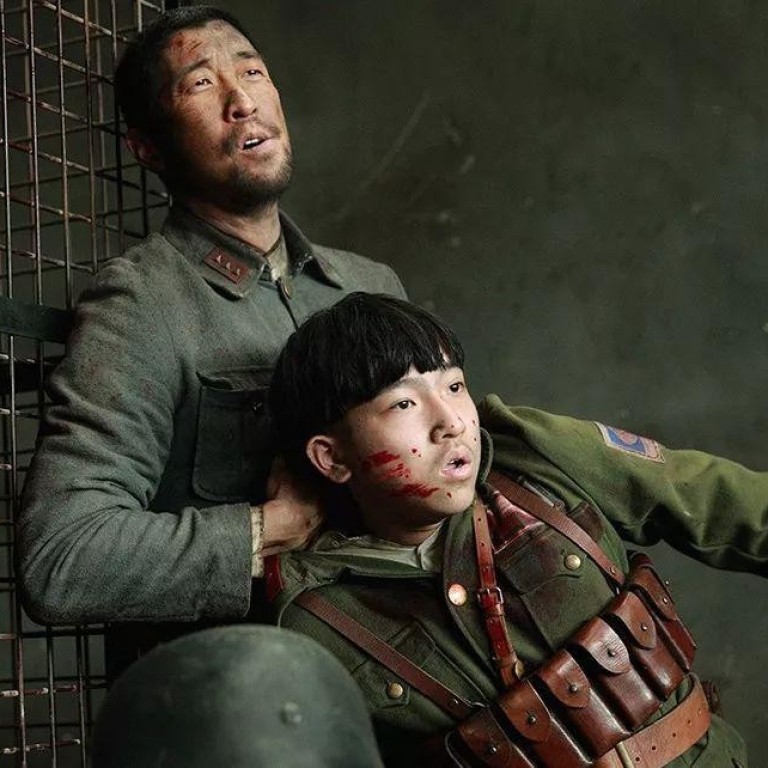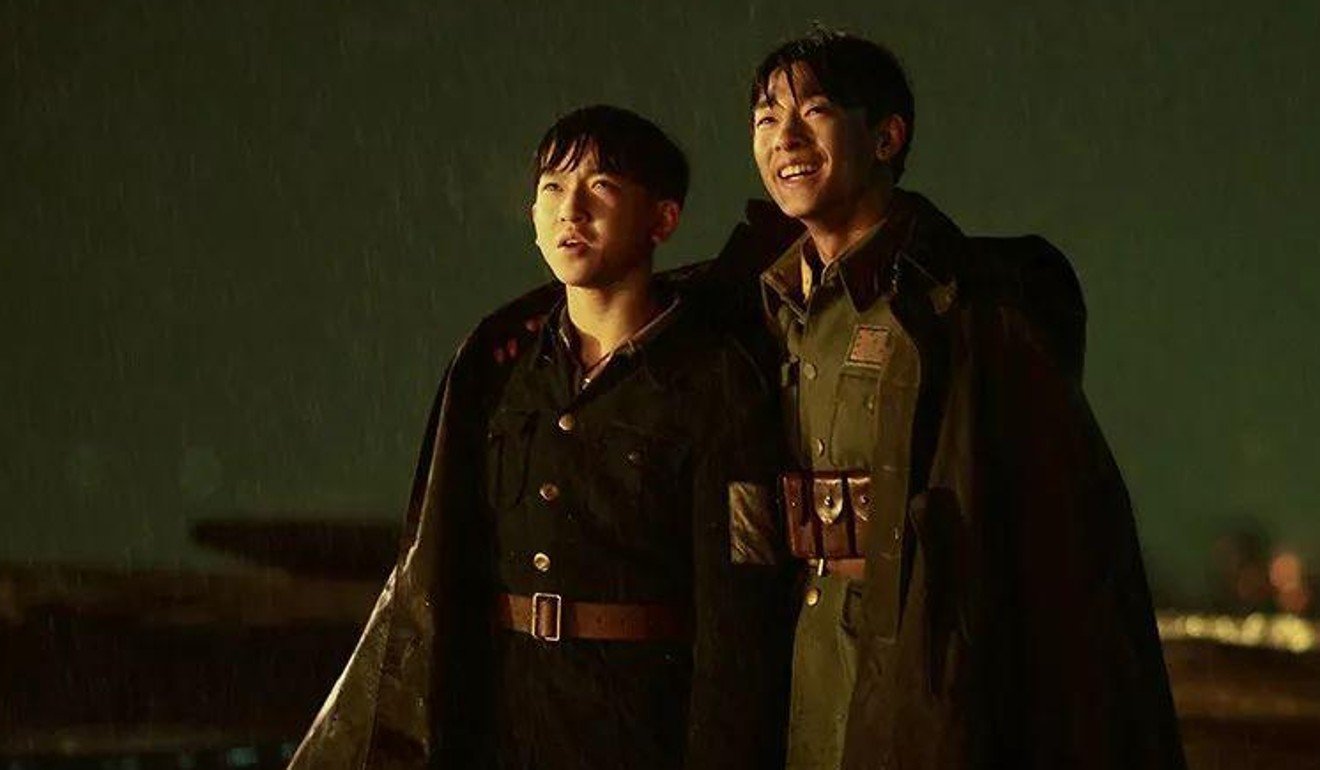
Chinese war film The Eight Hundred’s release cancelled, days after it was pulled from Shanghai film festival
- The film, telling story of Chinese Nationalist soldiers’ defence of a warehouse against Japanese army during Battle of Shanghai, was to have opened on July 5
- No reason was given for the cancellation, but it followed ‘consultation between the production team and other entities’, film’s official Weibo account said
The official release of China-produced World War II epic The Eight Hundred has been cancelled, days after its world premiere at the 22nd Shanghai International Film Festival was scrapped at short notice.
An announcement on the film’s official Weibo account, quoted by film industry publication Variety, said that, “after consultation between the production team and other entities, The Eight Hundred will cancel its original July 5 premiere and temporarily vacate the summer release date window. The new release date will be announced at a later time.”
To boost morale, the Nationalist commander of the defending forces, Xie Jinyuan, tells outsiders that they had 800 people standing guard at the warehouse. The soldiers hold out for four days and four nights, successfully beating back six Japanese advances, boosting the morale of the Chinese military and populace. However, the encounter wasn’t a turning point in the war and Shanghai eventually fell to the Japanese.
While the reason for the cancellation of the film’s release is not known, a week before the Shanghai festival opened the Chinese Red Culture Research Association held an academic conference on filmmaking where attendees voiced opinions on The Eight Hundred.
The association’s establishment in 2010 was approved by the Ministry of Civil Affairs and it is managed by the Chinese Academy of Social Sciences.

On the website of the association, attendees were quoted as criticising the movie for highlighting how the Nationalist forces counter the Japanese aggressors.
Social commentator Si Manan was quoted as saying: “The Eight Hundred goes to great lengths to highlight the Republic of China flag. Irrespective of what historical background the movie was based on, such overt portrayal [of the flag] is terrifying.”
Movie commentator Guo Songmin was quoted as saying at the conference that it’s not appropriate to sensationalise the flag’s “sanctity” and “solemnity”.

“If we do that, whether it’s intentional or not, we will hurt the feelings of Chinese people, especially those old soldiers who risked life and limb to build the modern China,” Guo was quoted as saying.
The conference reportedly came to the consensus that it was inappropriate for The Eight Hundred to go on general release in a year in which the 70th anniversary of the establishment of the People’s Republic of China is being celebrated.
The film is produced by the Huayi Brothers and directed by Guan Hu, whose previous work, Cow (2009), portrays a villager who strikes up a relationship with a milk cow during the Sino-Japanese war.

The Eight Hundred took Guan 10 years to make. Around 1,500 people were involved. Guan told Chinese media that the making of the film could help the younger generation understand this relatively unknown chapter in Chinese history, and let them know of the sacrifices made by the soldiers.
When the June 15 premiere was cancelled, the film’s Weibo account cited technical reasons. A series of promotional events planned for the film at the festival were also cancelled. They included a screening at Tongji University in Shanghai, and sessions at which cast and crew members were to meet the media and public in Shanghai.
The shock decision to cancel screenings of Guan’s film cast a pall over the Shanghai film festival, and prompted an outpouring of anger online.
An online user called Firefly said Sihang Warehouse was an important battleground in the Sino-Japanese war. “The event [at the warehouse] boosted the Chinese people’s confidence and passion in countering the Japanese. What’s the problem of making a movie based on that? What’s the problem of exalting the sacrificial spirit [of the soldiers]? For the leftist Maoists, if you like, you can make your own movies [showing how the communist forces fought the Japanese]. No one will object to that.
“For the showing of the Flag of the Republic of China, anyone with general understanding of history knows that the persistent standing of the flag led to the rousing scene [of Chinese soldiers making their last stand] at the warehouse. What’s the problem of highlighting the flag? Will you be satisfied if history is distorted by showing the Five-starred Red Flag instead?”

Another user called Paper Tiger said: “Nationalist soldiers constituted the main forces fighting the Japanese. This is fact. The Eight Hundred is a good movie. I hope it can be released.”
A third user with the online identity ftftdt said: “Does not letting this movie be released means this part of history no longer exists? Some people think that they win by not letting this movie be released. But they are actually the losers as they forget history and talk rubbish using their keyboards. I feel sad for the soldiers who died [during the warehouse siege]. They sacrificed for their country and get attacked by such people [now]. Please remember forever the soldiers who laid down their lives for an independent China.”
Want more articles like this? Follow SCMP Film on Facebook

